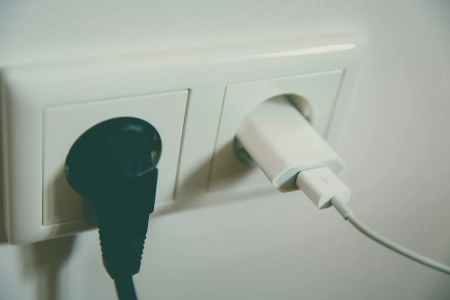Electricity prices just jumped again! This switch could save you up to $390
By
Maan
- Replies 33
Keeping the lights on is becoming increasingly difficult for many Australians—especially those already feeling the pinch.
A new round of price hikes is set to hit millions of households, adding pressure to already strained budgets.
But beneath the numbers lies a growing crisis that could leave vulnerable Aussies even further behind.
More than 215,000 Australians were already struggling to stay afloat with their electricity bills—now, millions more could be pulled into financial stress as fresh price hikes rolled out across the country from today.
Data released by the Australian Energy Regulator painted a concerning picture: between January and March, the number of households in debt climbed by 7 per cent compared to the previous quarter, and 5 per cent year-on-year.
The average amount owed also jumped, reaching $1415—up $20 since the previous quarter, and $309 more than the same period last year.
These figures landed just as energy providers and networks triggered another round of price increases.
While some households might receive a modest reprieve through federal rebates, others could face a much steeper climb.
‘From today, more than four million households will see their electricity prices rise, which for an average household could add more than $200 to their annual bill,’ Canstar Blue data insights director Sally Tindall said.
The increases were tied to changes in the default market offer, which were announced in May by the Australian Energy Regulator. For average households in New South Wales, South Australia and south-east Queensland, the change meant paying up to $228 more per year on a default plan.
But the pain didn’t stop there.
Market plan customers were also hit. AGL lifted prices in New South Wales by 13.5 per cent—its steepest hike—while South Australia and south-east Queensland saw increases of 7.8 and 7.5 per cent respectively.
Origin customers weren’t spared either, with prices climbing 9.1 per cent in New South Wales, 5.5 per cent in South Australia and 3.1 per cent in south-east Queensland.
Households in Victoria and the ACT had until 1 August before Origin and AGL introduced the same price hikes in those regions. EnergyAustralia also planned to follow suit, raising prices in New South Wales, Victoria and the ACT on 1 August, and then in Queensland and South Australia on 1 September.
Still, there was a flicker of relief.
Households eligible for the federal government’s energy bill rebate would continue receiving $75 off their quarterly bills until the end of the year. And for those willing to take action, greater savings were possible.
‘Electricity price hikes might feel unavoidable, however, switching providers can potentially bring real relief, especially for those who haven't switched providers in more than a year,’ Tindall said.
According to Canstar Blue, households could save between $144 and $390 annually by moving from an average-priced plan to the lowest plan available on their network.
‘Our research shows that if you switch from an average-priced plan to the lowest, you could potentially save over $300, depending on where you live,’ Tindall added.
‘That's proper relief, in addition to the extra $150 coming down the line from the federal government.’

With energy costs climbing yet again, have you recently considered switching providers to ease the strain on your budget? Let us know your thoughts in the comments.
In a previous story, we shared five insider tricks from an Aussie builder to help households cut their power bills before prices rise—advice that feels even more urgent now.
For seniors on fixed incomes, these simple strategies could be the difference between making ends meet or falling behind.
If you’re looking for practical ways to take control of your energy costs, this one’s definitely worth a read.
Read more: Are you overpaying on your power bill? Aussie builder shares 5 insider tricks to slash your costs before prices soar
A new round of price hikes is set to hit millions of households, adding pressure to already strained budgets.
But beneath the numbers lies a growing crisis that could leave vulnerable Aussies even further behind.
More than 215,000 Australians were already struggling to stay afloat with their electricity bills—now, millions more could be pulled into financial stress as fresh price hikes rolled out across the country from today.
Data released by the Australian Energy Regulator painted a concerning picture: between January and March, the number of households in debt climbed by 7 per cent compared to the previous quarter, and 5 per cent year-on-year.
The average amount owed also jumped, reaching $1415—up $20 since the previous quarter, and $309 more than the same period last year.
These figures landed just as energy providers and networks triggered another round of price increases.
While some households might receive a modest reprieve through federal rebates, others could face a much steeper climb.
‘From today, more than four million households will see their electricity prices rise, which for an average household could add more than $200 to their annual bill,’ Canstar Blue data insights director Sally Tindall said.
The increases were tied to changes in the default market offer, which were announced in May by the Australian Energy Regulator. For average households in New South Wales, South Australia and south-east Queensland, the change meant paying up to $228 more per year on a default plan.
But the pain didn’t stop there.
Market plan customers were also hit. AGL lifted prices in New South Wales by 13.5 per cent—its steepest hike—while South Australia and south-east Queensland saw increases of 7.8 and 7.5 per cent respectively.
Origin customers weren’t spared either, with prices climbing 9.1 per cent in New South Wales, 5.5 per cent in South Australia and 3.1 per cent in south-east Queensland.
Households in Victoria and the ACT had until 1 August before Origin and AGL introduced the same price hikes in those regions. EnergyAustralia also planned to follow suit, raising prices in New South Wales, Victoria and the ACT on 1 August, and then in Queensland and South Australia on 1 September.
Still, there was a flicker of relief.
Households eligible for the federal government’s energy bill rebate would continue receiving $75 off their quarterly bills until the end of the year. And for those willing to take action, greater savings were possible.
‘Electricity price hikes might feel unavoidable, however, switching providers can potentially bring real relief, especially for those who haven't switched providers in more than a year,’ Tindall said.
According to Canstar Blue, households could save between $144 and $390 annually by moving from an average-priced plan to the lowest plan available on their network.
‘Our research shows that if you switch from an average-priced plan to the lowest, you could potentially save over $300, depending on where you live,’ Tindall added.
‘That's proper relief, in addition to the extra $150 coming down the line from the federal government.’
Key Takeaways
- Over 215,000 Australians were already in energy debt, with the average amount owed rising to $1415.
- From today, electricity prices increased by up to 13.5 per cent, affecting more than four million households.
- Further hikes are expected in Victoria, the ACT, Queensland and South Australia from 1 August and 1 September.
- Households could save up to $390 annually by switching to cheaper plans and will continue receiving quarterly government rebates.
With energy costs climbing yet again, have you recently considered switching providers to ease the strain on your budget? Let us know your thoughts in the comments.
In a previous story, we shared five insider tricks from an Aussie builder to help households cut their power bills before prices rise—advice that feels even more urgent now.
For seniors on fixed incomes, these simple strategies could be the difference between making ends meet or falling behind.
If you’re looking for practical ways to take control of your energy costs, this one’s definitely worth a read.
Read more: Are you overpaying on your power bill? Aussie builder shares 5 insider tricks to slash your costs before prices soar








